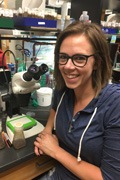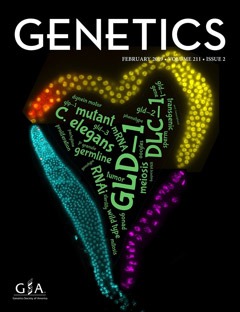New Faculty Workshop
Tuesday, May 11, 1:00–3:30 p.m. EDT
This event is designed to help new faculty (those within their first five years of appointment) and postdocs network, learn, and find support. In the past, topics covered in this event included tools and techniques for managing budgets effectively, tips for negotiating and establishing relationships with vendors, and tips on being a supportive mentor. Advance registration is required.
Setting up a lab
Moderator:
Robert Ward
Robert Ward is an associate professor in the Department of Biology at Case Western Reserve University. He earned his PhD in Genetics from Duke University, conducted postdoctoral research at the University of Utah, and spent 17 years as a faculty member in the Department of Molecular Biosciences at the University of Kansas prior to moving to Case Western Reserve. Rob has a long history of integrating research and teaching at the undergraduate and graduate levels, including promoting active learning and developing course-based undergraduate research courses. He has been the director of the Howard Hughes Medical Institute’s SEA-PHAGES programs at KU and CWRU since 2014. Rob’s research interests are in developmental and cell biology with an emphasis on using Drosophila genetics to address questions of tissue growth and morphogenesis.
Panelists:
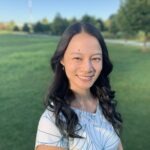
Teresa Lee
Teresa Lee is an Assistant Professor in the Department of Biological Sciences at UMass Lowell. Her lab uses C. elegans to study how chromatin landscapes mediate epigenetic inheritance over many generations. She received her PhD from UC Berkeley, where she trained with Barbara Meyer on how chromosome structure regulates meiotic recombination. She performed her postdoctoral research at Emory University with David Katz, where she discovered that repressive chromatin can enable longevity and its inheritance. Currently, the Lee lab combines molecular genetics, cytology, and genomics to explore how the transgenerational inheritance of chromatin affects health, development, and lifespan. She has developed classes using inclusive teaching strategies and course-based research experiences for Clark Atlanta University, the Emory-Tibet Science Initiative, and Oglethorpe University.
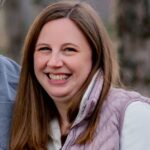
Nicole Crown
Nicole Crown is an Assistant Professor in the Department of Biology at Case Western Reserve University. She completed her PhD under the supervision of Dr. Mimi Zolan at Indiana University where she used molecular genetics to understand meiotic recombination in the basidiomycete Coprinus cinereus. She then completed a postdoc with Dr. Jeff Sekelsky at the University of North Carolina Chapel Hill where she received an NRSA F32 and a Pathway to Independence Award for her work on meiotic recombination in Drosophila melanogaster. Dr. Crown started her lab in the Department of Biology at Case Western Reserve University in 2018. Her lab works on how heterozygous inversions impact meiotic recombination both on a local scale and a genome-wide scale. She currently teaches a core Genetics class and an upper level Genome Dynamics class that uses backwards course design to prepare students to read cutting-papers in genetics. Her philosophy for science and teaching is that rigor is not mutually exclusive from kindness.
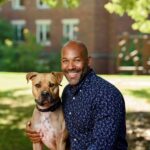
Derek Applewhite
Derek A. Applewhite is an Associate Professor in the Biology department at Reed College, a primarily undergraduate institute in Portland, Oregon. His lab group is interested in the role the cytoskeleton plays in cell migration, morphogenesis, and development. Primarily a cell biology lab, his research group capitalizes on the vast array of Drosophila-derived tissue culture cells to address fundamental questions about the regulation of the cytoskeleton. His research also uses the developing Drosophila embryo, to complement these studies performed in cells. His lab uses high-resolution imaging techniques, in combination RNAi on other genetic manipulations to the fundamental questions.
Teaching
Moderator:
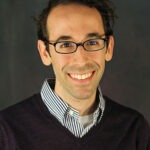
Justin DiAngelo
Justin DiAngelo is an Associate Professor of Biochemistry and Molecular Biology at Penn State Berks, an undergraduate campus of the Pennsylvania State University system. DiAngelo teaches a variety of courses to undergraduate students including Biochemistry, Cell Biology, Genetics and Immunology. He also runs a small research lab that focuses on the regulation of lipid and carbohydrate metabolism using the fruit fly, Drosophila melanogaster, as the model system. He is also currently serving as the Primarily Undergraduate Institution (PUI) Representative on the Drosophila Board of Directors.
Panelists:

Robert Ward
Robert Ward is an associate professor in the Department of Biology at Case Western Reserve University. He earned his PhD in Genetics from Duke University, conducted postdoctoral research at the University of Utah, and spent 17 years as a faculty member in the Department of Molecular Biosciences at the University of Kansas prior to moving to Case Western Reserve. Rob has a long history of integrating research and teaching at the undergraduate and graduate levels, including promoting active learning and developing course-based undergraduate research courses. He has been the director of the Howard Hughes Medical Institute’s SEA-PHAGES programs at KU and CWRU since 2014. Rob’s research interests are in developmental and cell biology with an emphasis on using Drosophila genetics to address questions of tissue growth and morphogenesis.
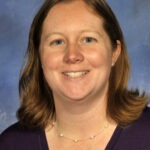
Julie Hall
Julie Hall, PhD received her degree at the University of North Carolina at Chapel Hill. Her work focused on aging in C. elegans. As a postdoctoral fellow in the National Toxicology program at NIEHS, she worked on gene regulation in response to cadmium in C. elegans. In 2014, she joined the faculty at Lincoln Memorial University in Harrogate, TN. She currently holds the rank of Associate Professor and is Chair of the Biology department. At LMU, her position is primarily teaching in the undergraduate program. She is also involved in the Master of Science program associated with the medical and veterinary school. Her research focuses on getting undergraduate students research experience. With this, projects are often toxicology related where the students get to investigate their own questions. She also works on heavy metals and their involvement in DNA damage in C. elegans. In her spare time, she is Troop Leader of her daughter’s Girl Scout Brownie troop, an assistant instructor at the Taekwondo school where her and her kids attend, and loves to garden.
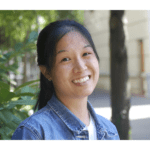
Te-Wen Lo
Te-Wen Lo is an Associate Professor in the Biology department at Ithaca College. She received her BA in Psychology from New York University. During college, she became intrigued by the power of genetics and received her PhD in Genetics from Yale University. At Ithaca College, Te-Wen splits her time between the classroom and her research lab. She teaches a variety of genetics courses for majors and non-majors and investigates developmental pathways such as sex determination and FGF signaling. Te-Wen is also actively involved with numerous efforts on campus to increase the accessibility of novel research experiences for undergraduate students.
Grants and Funding
Thursday, May 13, 1:00 –2:00 p.m. EDT
This workshop provides attendees with important and useful information related to applying for research funding in the United States and internationally. Attendees hear talks from experienced investigators and program officers and have a chance to ask questions in a friendly, low-stress environment.
Moderator:
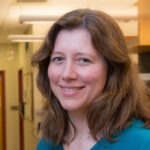
Monica Colaiácovo
Monica Colaiácovo is a Professor in the Department of Genetics at Harvard Medical School researching the mechanisms that promote accurate chromosome segregation during meiosis as well as how they are affected by man-made chemicals present in our environment. She obtained her PhD in Molecular and Cell Biology at Brandeis University studying homologous recombination in budding yeast and was a postdoctoral fellow at Stanford University investigating meiosis in the nematode C. elegans. She is currently Associate Director for the Biological and Biomedical Sciences PhD program at HMS and serves as Associate Editor for the journal PLoS Genetics.
Panelists:

Arcady Mushegian, PhD
National Science Foundation Program Director
Arcady Mushegian has been a Program Director at NSF since 2012, managing the core programs in the Genetic Mechanisms cluster (Division of Molecular and Cellular Biology), as well as several interdisciplinary programs, such as Origin of Life Ideas Lab and NSF-Simons Foundation Research Centers for Mathematics of Complex Biological Systems. Arcady’s research interests include computational analysis of protein sequences, genome evolution, viruses, plants and RNA World.

Bob Coyne, PhD
National Institute of General Medical Sciences Program Director – Developmental and Cellular Processes
Robert (Bob) Coyne, PhD is a Program Director in the Developmental and Cellular Processes branch in the Division of Genetics and Molecular, Cellular, and Developmental Biology at NIGMS, where he administers research grants in the areas of microbiome, biofilms, quorum sensing, and chromosome structure and postdoctoral training grants. He was formerly a Scientific Review Officer at the National Cancer Institute. Prior to coming to NIH, Bob was an Associate Professor at the J. Craig Venter Institute. He also served as a Program Officer at the National Science Foundation in both the Biology Directorate and the Experimental Program to Stimulate Competitive Research (EPSCoR). He received a bachelor’s degree in Biology and Chemistry from Allegheny College and a PhD in Cellular and Developmental Biology from Harvard University. He conducted postdoctoral research at the Fred Hutchinson Cancer Research Center and served as an Assistant Professor or Visiting Assistant Professor at Colgate University, Cornell University, and the University of Virginia Medical School. His graduate research was with Drosophila melanogaster and postdoctoral and beyond with Tetrahymena thermophila.
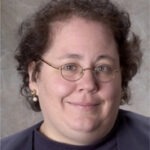
Victoria McGovern, PhD
Burroughs Wellcome Fund Senior Program Officer
Victoria McGovern, PhD is a Senior Program Officer at the Burroughs Wellcome Fund. She runs the Fund’s program in Infectious Diseases, the institutional programs in Population and Laboratory Based Sciences and in Quantitative Thinking, and the workforce development-focused Career Guidance for Trainees program. She joined BWF in 1997. For more than 25 years, she has been involved in science policy efforts related to strengthening the scientific workforce, an interest she continues at the Fund.
She earned bachelor’s degrees in Biology and English Literature at Washington University in St. Louis and a Doctor of Philosophy degree in Biochemistry at the University of Alabama at Birmingham, followed by an NSF-funded postdoctoral fellowship in marine biotechnology at the Cameron Applied Research Center in Charlotte. At the bench, she was most interested in how organisms use DNA topology to convey information. She was one of the first Hull Leadership Fellows of the Southeastern Council of Foundations, and is a fellow of the Royal Society of Tropical Medicine and Hygiene and of the American Society for Tropical Medicine and Hygiene.

Janka Mátrai, PhD
European Research Council Executive Agency Scientific Officer
Janka Mátrai is a scientific officer at the Executive Agency of the European Research Council (ERCEA), Life Sciences Unit, panels LS2 and LS5, Integrative Biology: From Genes and Genomes to Systems; and Neuroscience and Disorders of the Nervous System, respectively. Mátrai’s responsibilities cover the whole life cycle of the grant application, evaluation and follow-up process. She is involved in the widening participation program aiming at closing the gap between the EU13 countries and the rest of the EU. I am also a trainer for our newcomer colleagues. Prior to this, she worked as a postdoctoral scientist in various fields and institutes, in the Institute for Reference Materials and Measurements – Joint Research Centre, in fundamental and translational medical research, gene therapy and regenerative medicine at the University of Leuven (KUL), Flemish Institute for Biotechnology (VIB) and the Free University of Brussels (VUB). Mátrai obtained a PhD in 2005 at the KUL in structural biochemistry, molecular modelling and drug design. She has earned several national and international fellowships, and prizes, and she has co-authored two book chapters and contributed to over 18 scientific publications (IF>10, 5). She is a member of the Association for Glycogen Storage Disease UK, and cofounder of the Belgian Club of Hungarian Scientists.

Etsuko Kifune
Japan Society for the Promotion of Science Deputy Director, Washington, DC Office
Born and raised in Iwakuni city in Japan where one of US Marine Corps Air Stations is located, Etsuko received bachelor’s and master’s degrees in science from the University of Tokyo. After working as a JSPS Research Fellow-DC1 in plant physiology at the University of Tokyo, she began her career as an administrative staff at JSPS headquarters in Tokyo in 2011. Most of her past job responsibilities were related to the JSPS’s research fellowship programs for both international and early-career Japanese researchers. She has been the Deputy Director of a JSPS’s overseas office in Washington DC since October 2018. JSPS Washington Office holds scientific symposia with various topics and information sessions about JSPS programs and supports the current and past JSPS research fellows, including the US and Canada JSPS Alumni Association, to expand international networks among scientists.
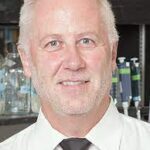
Christopher McMaster, PhD
Canadian Institutes of Health Research Institute of Genetics Director
Dr. Christopher McMaster is a professor of the Department of Pharmacology at Dalhousie University and Director of the Cheminformatics Drug Discovery Lab, which uses sophisticated software to design and then synthesize new drugs. Previous to this, he held a Canada Research Chair (Tier 2) in Biosignalling (the study of how messages are conveyed into cells by the interaction of a signal or a chemical messenger with a receptor incorporated into the cell membrane), and was the Assistant Dean for Graduate and Postdoctoral Studies in the Faculty of Medicine at Dalhousie University.
He currently serves on the scientific advisory board for the CIHR Institute of Genetics-sponsored Rare Disease Models and Mechanisms grant that connects the infrastructure and leadership of Canada’s gene discovery projects with scientific communities working with model organisms, such as yeast, worms, zebrafish, fruit flies, and mice.

